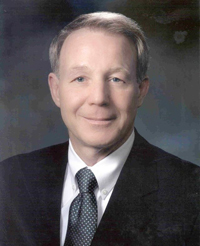Beard Points California in the Right Direction
 SACRAMENTO, Calif. — Correctional News recently caught up with Dr. Jeffrey Beard, Ph.D., the newly appointed secretary of corrections for the California Department of Corrections and Rehabilitation (CDCR).
SACRAMENTO, Calif. — Correctional News recently caught up with Dr. Jeffrey Beard, Ph.D., the newly appointed secretary of corrections for the California Department of Corrections and Rehabilitation (CDCR).
While visiting Beard at the CDCR headquarters in Sacramento, he explained his reasons for taking the position in California, even after his previous retirement from the Pennsylvania Department of Corrections. His decision for coming back has a big impact on the future of California, as he hopes to resolve problems that have been plaguing the state’s correctional system for years.
Beard explained the directions he wanted to go with California and pinpointed institutional safety and strategies, a focus on a new parole model, as well as improving and increasing programming.
In terms of safety and strategy, Beard explained that lockdowns are a major concern as well as contraband. Beard hopes to decrease the occurrences now that inmate population is down and can be more manageable.
“We want to be sure that we are keeping the contraband out of the prisons like drugs and cell phones…I think that we’re positioned to do some things like that — get some of the contraband out, reduce the lockdowns and make the place safer,” said Beard.
Beard explained that parole has been “significantly downsized” and the department has closed down regions and offices statewide.
“They have a new parole model that they are trying to put in place, so we need to get that rolled out there,” he said.
Another major component of Beard’s plan for California includes significant increases to prison programming.
“We want to improve and increase the programming within the prison system and then mesh that programming with what they are doing on parole. For instance, you get an inpatient substance abuse program in prison and then you get your after care once you get out on parole, so we want to work together to improve the programming in both areas.”
“When we improve the programming we want to do things that will help reduce the idleness to keep inmates busy — but we also want to do things that make a difference, in other words, things that will actually, truly reduce recidivism — so we want to make sure the programs we do are evidence-based. As we put the programs in we’ll need to do research on those programs and make sure they are really doing what we say that they’re doing.”
Beard said he will also look to his past experiences as the former secretary for the Pennsylvania Department of Corrections to help him manage the situation in California, and when it comes to programming he explained, “If it’s not working then we’ll do similar to what I did in Pennsylvania and that is, if a program isn’t working we either changed it or got rid of it and only focused on those programs that made a difference.”
